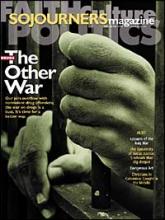It's hard to imagine a noteworthy book about the civil rights movement that doesn't include the powerful ingredients of religion and faith. Fortunately, two new publications explore these themes, each with a distinct approach: Witnessing and Testifying, by Rosetta E. Ross, an ethics professor at United Theological Seminary in the Twin Cities, and This Far By Faith, by Juan Williams and Quinton Dixie, correspondent for NPR and Indiana University professor, respectively. The first book adds to the body of civil rights literature rich biographical insight into the lives of seven black women activists. The latter is a historical overview of the movement in which religion and faith are central characters in the story for equality in America.
Ross' theological framework revolves around a central theme, that "survival" and "racial uplift" practices were inextricably linked for black women activists. By racial uplift Ross means the desire and strivings of African Americans to survive slavery, gain independence, develop self-sufficiency and well-being, and engage as full participants in the body politic. For black women activists, witnessing and testifying became, quite naturally, a public extension of their faith and allegiance to God.
Read the Full Article
